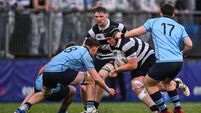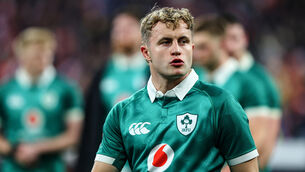Why can’t Wales crack the Heineken Cup?
IN the wake of a third Six Nations Grand Slam in seven years you could forgive the Welsh if they paid little heed to what is going on over on this side of the Irish Sea.
Yet as Cardiff Blues arrive in Dublin this weekend to face Leinster in the Heineken Cup quarter-finals there may well be more than a little jealousy back in the Valleys at the levels of success Irish provinces are enjoying in the greatest club competition European rugby has to offer.















